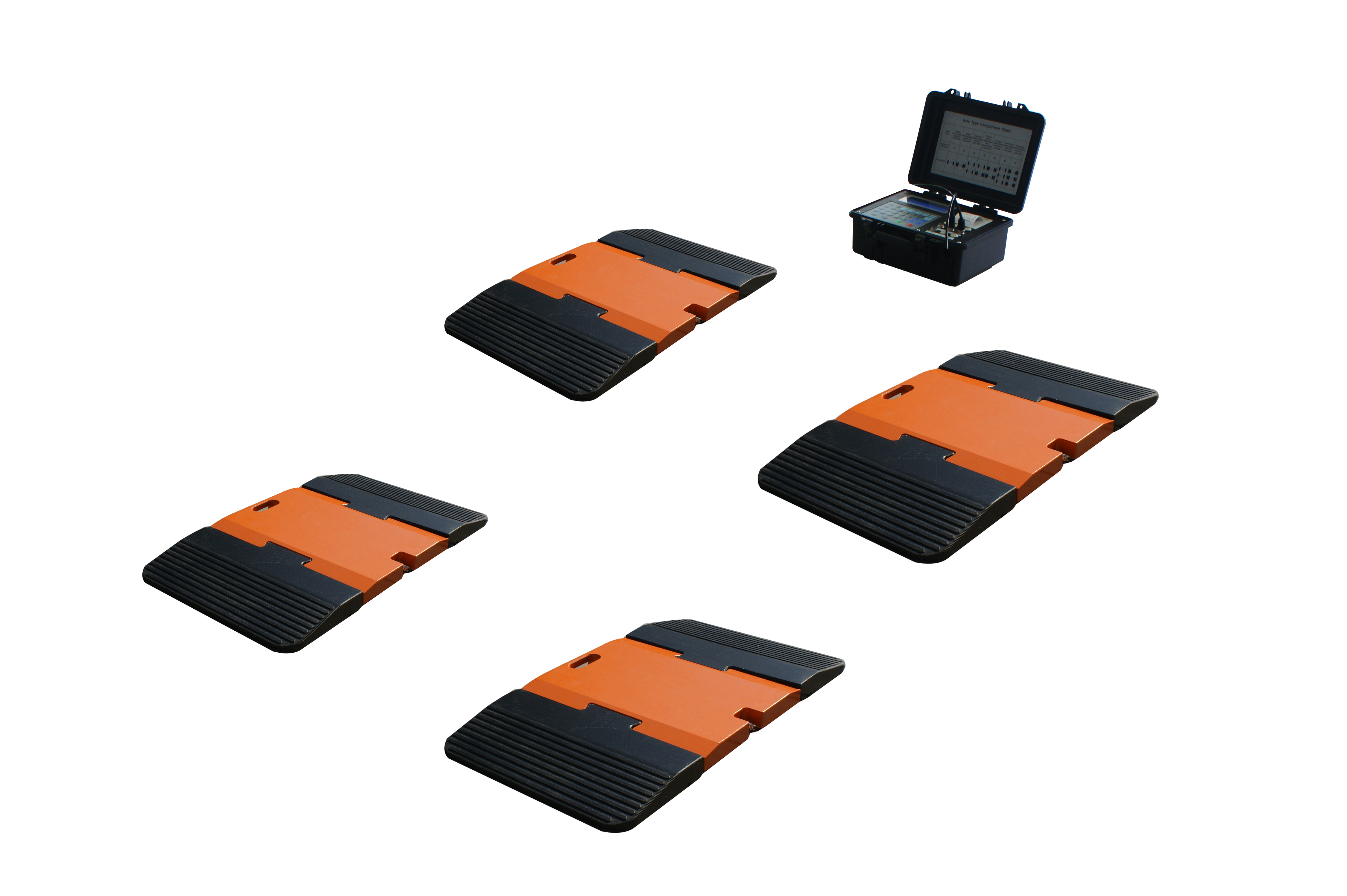Views: 2 Author: Site Editor Publish Time: 2024-06-27 Origin: Site

Axle scales represent a crucial innovation in the realm of weighing technology, designed specifically to accurately measure the weight of vehicles by individual axles or groups of axles. This capability is particularly valuable in industries where weight distribution and compliance with weight regulations are paramount, such as transportation, logistics, and agriculture. By providing precise measurements without the need for entire vehicle weighing, axle scales streamline processes, ensure safety, and contribute significantly to operational efficiency.
At its core, an axle scale functions by utilizing load cells strategically positioned beneath the surface where the vehicle's wheels pass. These load cells detect the weight exerted on them, converting it into an electrical signal proportional to the force applied. This signal is then processed by sophisticated electronics within the scale, which in turn display the weight readings either digitally or through analog means.
Axle scales come in various forms, each catering to specific needs and environments:
1. Portable Axle Scales: These are lightweight and easy to transport, making them ideal for temporary or mobile weighing operations, such as roadside inspections or construction sites.

2. Fixed Axle Scales: Installed permanently on the ground, these scales provide consistent and reliable measurements in locations where weighing is frequently required, such as warehouses or distribution centers.

3. In-Ground Axle Scales: Designed to be installed flush with the ground surface, these scales offer a seamless integration into existing roadways or platforms, minimizing disruption and maximizing convenience.
The versatility of axle scales lends itself to a wide range of applications across various industries:
1. Transportation Industry: Axle scales play a crucial role in ensuring compliance with weight regulations for commercial vehicles, helping to prevent overloading and subsequent damage to infrastructure.
2. Agriculture: Farmers and agricultural producers utilize axle scales to accurately weigh harvests or livestock, optimizing transport efficiency and ensuring adherence to legal weight limits.
3. Construction: In construction projects, axle scales enable contractors to monitor the weight of construction materials, equipment, and vehicles, facilitating efficient logistics and enhancing safety on-site.
4. Logistics and Warehousing: Axle scales aid in the precise measurement of goods loaded onto trucks or containers, enabling logistics companies to maximize payloads while complying with transportation regulations.
The adoption of axle scales offers numerous advantages to industries and businesses:
1. Accuracy: Axle scales provide precise weight measurements, ensuring compliance with legal standards and preventing the risks associated with overloading.
2. Efficiency: By eliminating the need for full vehicle weighing, axle scales reduce weighing time and operational delays, thereby enhancing overall productivity.
3. Cost-Effectiveness: Improved weight management through axle scales helps reduce fuel consumption, maintenance costs, and potential fines related to overweight violations.
4. Safety: Ensuring vehicles operate within safe weight limits mitigates risks to road infrastructure, improves vehicle handling, and enhances overall road safety.
While axle scales offer significant benefits, several considerations should be taken into account:
1. Maintenance: Regular calibration and maintenance are essential to ensure the accuracy and reliability of axle scales over time.
2. Environmental Factors: Changes in temperature, moisture, and surface conditions can affect the performance of axle scales, necessitating proper site preparation and maintenance.
3. Integration with Existing Systems: Compatibility with existing weighing and data management systems may require additional planning and investment.
Looking ahead, advancements in axle scale technology are expected to focus on:
1. Integration of IoT: Leveraging Internet of Things (IoT) capabilities to enable real-time monitoring, data analytics, and predictive maintenance of axle scales.
2. Enhanced Durability: Development of more robust materials and designs to withstand harsh environmental conditions and prolonged use.
3. Automated Data Processing: Implementation of automated data capture and processing technologies to streamline logistics and compliance reporting.
In conclusion, axle scales represent a pivotal innovation in weighing technology, offering precise measurements of vehicle axle weights across various industries. Their ability to enhance efficiency, ensure compliance with regulations, and improve safety underscores their importance in modern transportation and logistics operations. As technology continues to evolve, so too will the capabilities and applications of axle scales, reinforcing their role as indispensable tools for optimizing operational performance and driving sustainable growth.